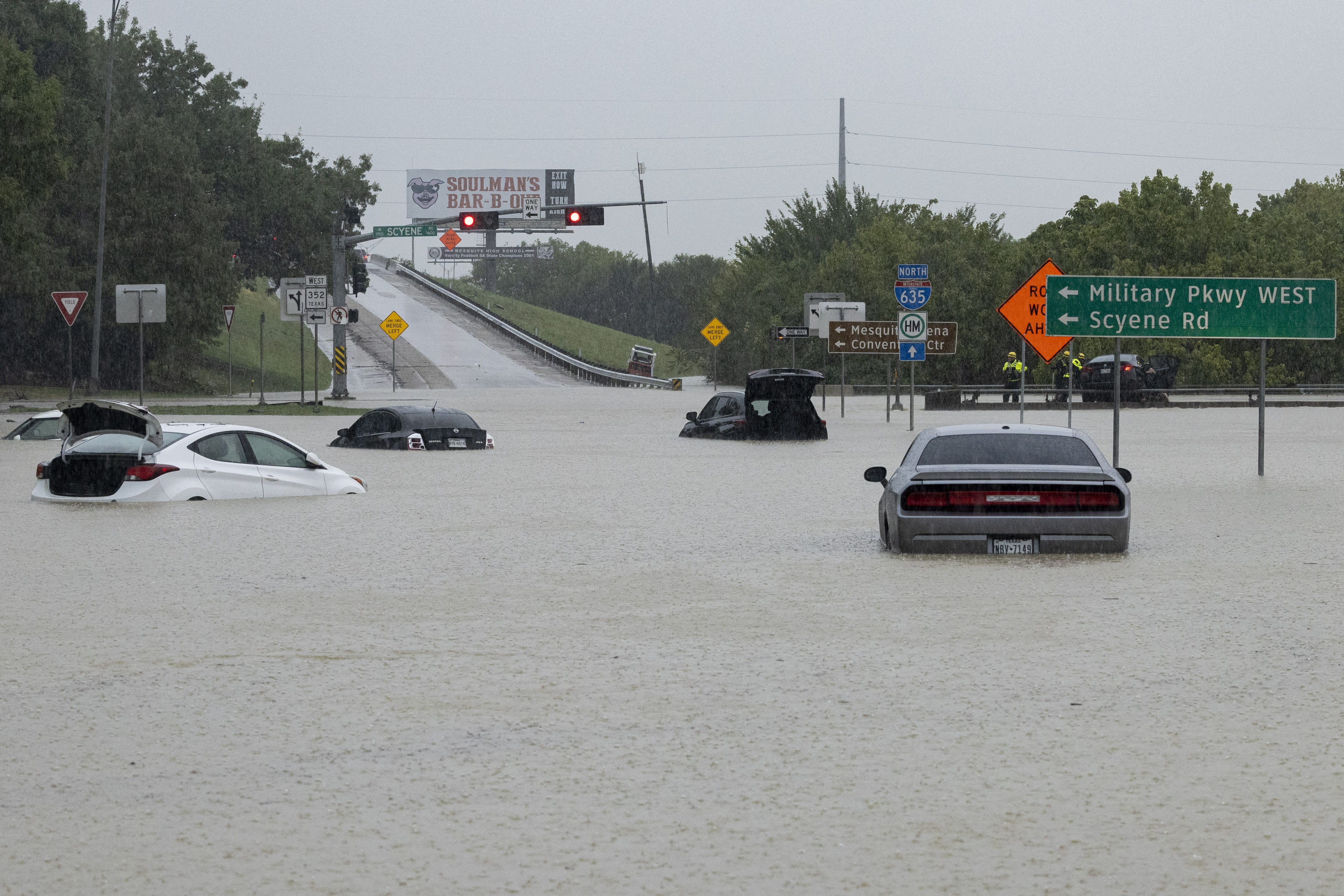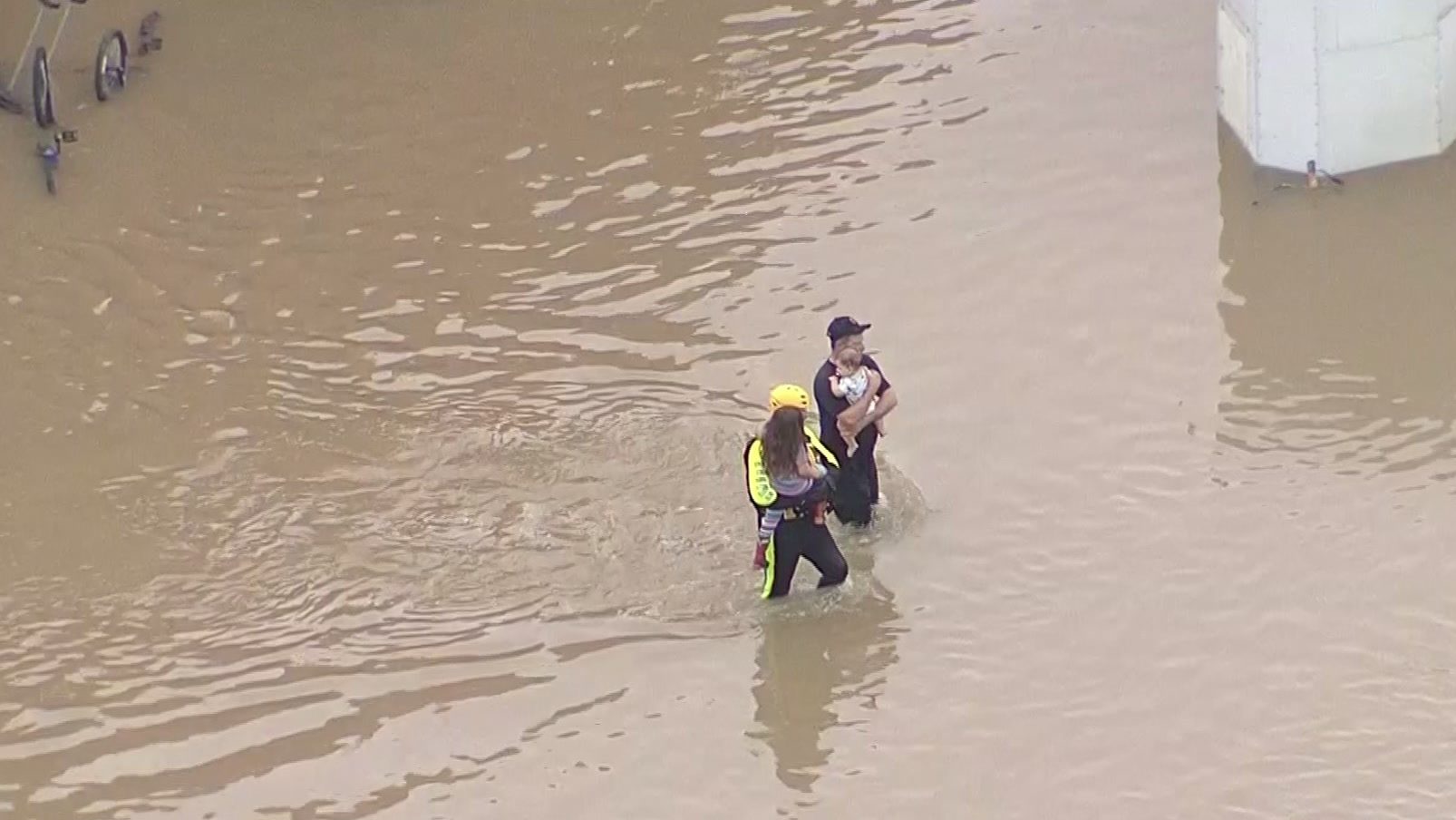Surprisingly the summer deluge that dropped as much as 15 inches of flooding rain in parts of North Texas on Monday may not be as beneficial to local water districts as you might think.
According to a post by the National Weather Service, while the heaviest rainfall fell over Tarrant and Dallas counties, the areas where some of the most torrential rain came down did not fall in watersheds that supply local water districts except for Cedar Creek Reservoir.
Rain that fell in those other areas, the NWS said, will end up flowing to Lake Livingston and become part of Houston's water supply.
"It's not like we didn't benefit from the heavy rain. All that rain is soaking in and the grass, the trees are soaking it up and are doing much better now," said NBC 5 Meteorologist Grant Johnston. "Not to say it's all for naught. Not at all. We'll take it. But a lot of it just floats on by as it heads down toward the Gulf of Mexico."
Get DFW local news, weather forecasts and entertainment stories to your inbox. Sign up for NBC DFW newsletters.

Zach Huff, the water resources engineering director for the Tarrant Regional Water District, agreed and told NBC 5 that while Monday's storm was unique and very intense most of the rain fell in the city, along the floodway, and missed a lot of the watershed that drives stormwater into area reservoirs.
Huff said areas in the watershed didn't receive rainfall like what was seen in downtown Fort Worth where runoff from roofs, concrete and pavement was quickly directed into the Trinity River where it'll head south toward Lake Livingston.
Water in the Cedar Creek Reservoir, which is southeast of DFW in Henderson and Kaufman counties, only went up about two feet after the storms but in a lake the size of Cedar Creek that two-foot increase represents about 21.6 billion gallons of water.
The Cedar Creek watershed draws from roughly 1,000 square miles in Kaufman, Henderson, Rockwall, and Van Zandt counties southeast of Dallas. Being more rural, and taking longer to collect, Huff said Cedar Creek is expected to top out in the coming days.
By comparison, Lake Arlington, which is about 17 times smaller than Cedar Creek and whose watershed is more urban and covered in roofs, pavement and cement, quickly rose roughly 7 feet after the storm and has already peaked above the conservation stage after adding about 4.4 billion gallons of water.
NORTH TEXAS FLOODING
The TRWD said only about 4.5 feet of the rise in Arlington will contribute to the local water supply. The rest, which is about 1.6 billion gallons of water, will go over the spillway and down the Trinity River.
The water that poured into Lake Arlington and Cedar Creek that will stay in the reservoir, Huff said, resulted in an increase of up to about 24.4 billion gallons of water, or about 3%, of the TRWD's water supply.
While the near-record rainfall didn't end up filling area reservoirs, there are other benefits that come from the storm including it bringing an end to the streak of days with triple-digit heat and persistent sunshine which impacted the demand for water.
Huff said in the days after the storm TRWD customers used about 285 million gallons of water, which was roughly half of the 550 million gallons that were being used in the days before.
Cloud cover and cooler weather have also slowed evaporation at area reservoirs. Huff said they were losing about 700 million gallons of water per day at TRWD reservoirs due to the sun, temperature and wind, but that loss due to evaporation dropped to about 200 million gallons per day in the cloudier, cooler days that followed after the storm.
For conservation tips and watering advice tailored to your neighborhood, visit savetarrantwater.com.
CONTINUING WEATHER COVERAGE
Stay up to date with the latest weather forecast from NBC 5's team of Weather Experts by clicking here or by watching the video below.

Be prepared for your day and week ahead. Sign up for our weather newsletter.



